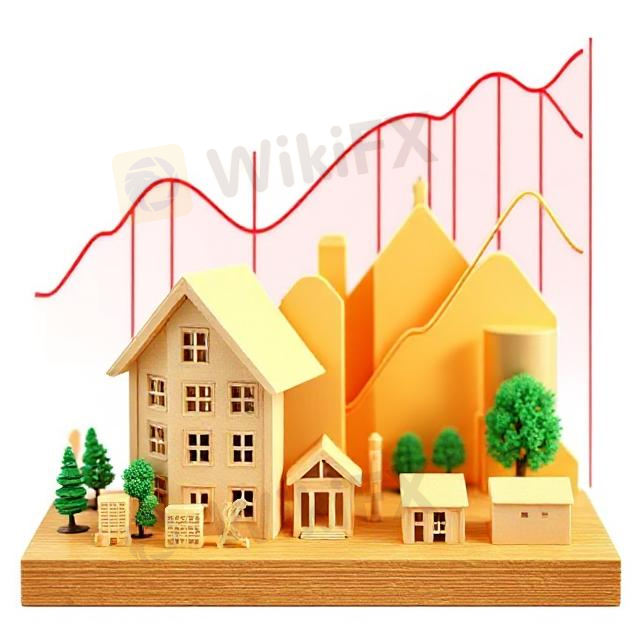
2025-02-14 19:26
NgànhECONOMIC MODEL: STRENGTH AND WEAKNESS
ECONOMIC MODEL:STRENGTH AND WEAKNESS
Here's an overview of some popular economic models, their strengths, and weaknesses:
1. Classical Economic Model
- *Assumptions:* Free market, perfect competition, rational behavior
- *Strengths:*
- Encourages economic growth and innovation
- Efficient allocation of resources
- Simple and intuitive
- *Weaknesses:*
- Ignores income inequality and poverty
- Assumes perfect information and rational behavior
- Doesn't account for externalities and market failures
2. Keynesian Economic Model
- *Assumptions:* Government intervention, imperfect competition, animal spirits
- *Strengths:*
- Explains business cycles and economic instability
- Emphasizes government's role in stabilizing the economy
- Accounts for uncertainty and irrational behavior
- *Weaknesses:*
- Can lead to inflation and government debt
- Assumes government intervention is always effective
- Doesn't account for supply-side factors
3. Marxist Economic Model
- *Assumptions:* Class struggle, exploitation, dialectical materialism
- *Strengths:*
- Highlights income inequality and exploitation
- Emphasizes the role of power and class struggle
- Provides a critique of capitalism
- *Weaknesses:*
- Can be overly simplistic and deterministic
- Doesn't account for individual agency and innovation
- Has been associated with authoritarian regimes
4. Monetarist Economic Model
- *Assumptions:* Monetary policy, rational expectations, efficient markets
- *Strengths:*
- Emphasizes the role of monetary policy in stabilizing the economy
- Accounts for the importance of expectations and credibility
- Simple and intuitive
- *Weaknesses:*
- Can be overly focused on monetary policy
- Assumes rational expectations and efficient markets
- Doesn't account for income inequality and poverty
5. Austrian Economic Model
- *Assumptions:* Methodological individualism, subjectivism, market process
- *Strengths:*
- Emphasizes individual agency and entrepreneurship
- Accounts for uncertainty and complexity
- Provides a critique of government intervention
- *Weaknesses:*
- Can be overly critical of government intervention
- Doesn't account for income inequality and poverty
- Can be associated with libertarian ideology
6. Institutional Economic Model
- *Assumptions:* Institutions, social norms, path dependence
- *Strengths:*
- Emphasizes the role of institutions and social norms
- Accounts for path dependence and historical context
- Provides a nuanced understanding of economic development
- *Weaknesses:*
- Can be overly complex and difficult to model
- Doesn't account for individual agency and innovation
- Can be associated with deterministic views of history
7. Behavioral Economic Model
- *Assumptions:* Behavioral biases, heuristics, prospect theory
- *Strengths:*
- Accounts for cognitive biases and heuristics
- Emphasizes the role of emotions and psychology
- Provides a nuanced understanding of human decision-making
- *Weaknesses:*
- Can be overly focused on individual behavior
- Doesn't account for institutional and structural factors
- Can be associated with paternalistic policies
8. Green Economic Model
- *Assumptions:* Environmental sustainability, social justice, human well-being
- *Strengths:*
- Emphasizes the importance of environmental sustainability
- Accounts for social justice and human well-being
- Provides a holistic understanding of economic development
- *Weaknesses:*
- Can be overly idealistic and unrealistic
- Doesn't account for trade-offs and opportunity costs
- Can be associated with radical or utopian views
These economic models are not mutually exclusive, and many economists draw on elements from multiple models to understand the complexities of the economy.
Thích 0

FX2327673285
Brokers
Bình luận phổ biến
Ngành
Có cao quá k?
Ngành
Xin ý kiến liberforex
Ngành
Đầu tư CDG
Ngành
Cắt lỗ
Ngành
Có nên chốt lỗ?
Ngành
Hỏi về dòng tiền
Phân loại diễn đàn

Nền tảng

Triển lãm

IB

Tuyển dụng

EA

Ngành

Chỉ số thị trường

Chỉ số
ECONOMIC MODEL: STRENGTH AND WEAKNESS
 Hong Kong | 2025-02-14 19:26
Hong Kong | 2025-02-14 19:26ECONOMIC MODEL:STRENGTH AND WEAKNESS
Here's an overview of some popular economic models, their strengths, and weaknesses:
1. Classical Economic Model
- *Assumptions:* Free market, perfect competition, rational behavior
- *Strengths:*
- Encourages economic growth and innovation
- Efficient allocation of resources
- Simple and intuitive
- *Weaknesses:*
- Ignores income inequality and poverty
- Assumes perfect information and rational behavior
- Doesn't account for externalities and market failures
2. Keynesian Economic Model
- *Assumptions:* Government intervention, imperfect competition, animal spirits
- *Strengths:*
- Explains business cycles and economic instability
- Emphasizes government's role in stabilizing the economy
- Accounts for uncertainty and irrational behavior
- *Weaknesses:*
- Can lead to inflation and government debt
- Assumes government intervention is always effective
- Doesn't account for supply-side factors
3. Marxist Economic Model
- *Assumptions:* Class struggle, exploitation, dialectical materialism
- *Strengths:*
- Highlights income inequality and exploitation
- Emphasizes the role of power and class struggle
- Provides a critique of capitalism
- *Weaknesses:*
- Can be overly simplistic and deterministic
- Doesn't account for individual agency and innovation
- Has been associated with authoritarian regimes
4. Monetarist Economic Model
- *Assumptions:* Monetary policy, rational expectations, efficient markets
- *Strengths:*
- Emphasizes the role of monetary policy in stabilizing the economy
- Accounts for the importance of expectations and credibility
- Simple and intuitive
- *Weaknesses:*
- Can be overly focused on monetary policy
- Assumes rational expectations and efficient markets
- Doesn't account for income inequality and poverty
5. Austrian Economic Model
- *Assumptions:* Methodological individualism, subjectivism, market process
- *Strengths:*
- Emphasizes individual agency and entrepreneurship
- Accounts for uncertainty and complexity
- Provides a critique of government intervention
- *Weaknesses:*
- Can be overly critical of government intervention
- Doesn't account for income inequality and poverty
- Can be associated with libertarian ideology
6. Institutional Economic Model
- *Assumptions:* Institutions, social norms, path dependence
- *Strengths:*
- Emphasizes the role of institutions and social norms
- Accounts for path dependence and historical context
- Provides a nuanced understanding of economic development
- *Weaknesses:*
- Can be overly complex and difficult to model
- Doesn't account for individual agency and innovation
- Can be associated with deterministic views of history
7. Behavioral Economic Model
- *Assumptions:* Behavioral biases, heuristics, prospect theory
- *Strengths:*
- Accounts for cognitive biases and heuristics
- Emphasizes the role of emotions and psychology
- Provides a nuanced understanding of human decision-making
- *Weaknesses:*
- Can be overly focused on individual behavior
- Doesn't account for institutional and structural factors
- Can be associated with paternalistic policies
8. Green Economic Model
- *Assumptions:* Environmental sustainability, social justice, human well-being
- *Strengths:*
- Emphasizes the importance of environmental sustainability
- Accounts for social justice and human well-being
- Provides a holistic understanding of economic development
- *Weaknesses:*
- Can be overly idealistic and unrealistic
- Doesn't account for trade-offs and opportunity costs
- Can be associated with radical or utopian views
These economic models are not mutually exclusive, and many economists draw on elements from multiple models to understand the complexities of the economy.
Thích 0
Tôi cũng muốn bình luận.
Đặt câu hỏi
0bình luận

Chưa có người bình luận, hãy là người bình luận đầu tiên


Đặt câu hỏi
Chưa có người bình luận, hãy là người bình luận đầu tiên